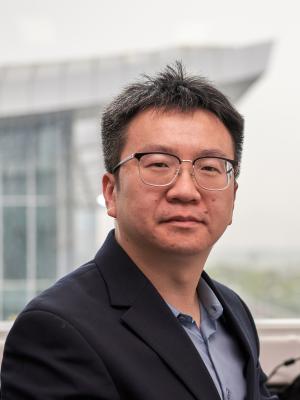Linfeng Huang
Prof. Linfeng Huang is an Associate Professor at Duke Kunshan University. He is passionate about pursuing fundamental questions in RNA biology and believes such knowledge can be exploited to create powerful RNA-based biotechnology and therapeutics. He has long been engaged in basic research on RNA and is applying RNA technology to study important diseases. He has made significant contributions to the RNA interference (RNAi) field, including the discovery of the subunit structure of RNA polymerase V (2009) and the invention of the pro-siRNA technology, the world's first cell-based method for siRNA production (2013). Currently, his research team is using high-throughput RNAi screen to investigate the mechanisms of important cellular pathways and diseases. At Duke Kunshan, his teaching interests include microbiology, genetics, cell biology and molecular biology.
Prof. Huang has published papers in leading scientific journals including Nature Biotechnology, Nature Structural and Molecular Biology, Nature Protocols, Biotechnology and Bioengineering, Science Advances, mBio, and eLife. His research has been supported by external grants from NSFC and funding agencies of Hong Kong SAR, Shenzhen, Jiangsu, and Kunshan.
Prof. Huang received his BSc degree from the College of Biological Sciences, China Agricultural University in Beijing. After graduation in 2003, he did a short academic visit at the Centre for Ecology and Hydrology-Oxford in the UK before pursuing his PhD at the Sainsbury Laboratory, John Innes Centre in the UK. He was mentored by Prof. Sir David Baulcombe and obtained his PhD from University of East Anglia in 2009. He then did postdoctoral training with Prof. Judy Lieberman at Boston Children’s Hospital and Harvard Medical School in the USA. He joined the Department of Biomedical Sciences at City University of Hong as Assistant Professor in 2014 and left in 2020 as tenured Associate Professor.

